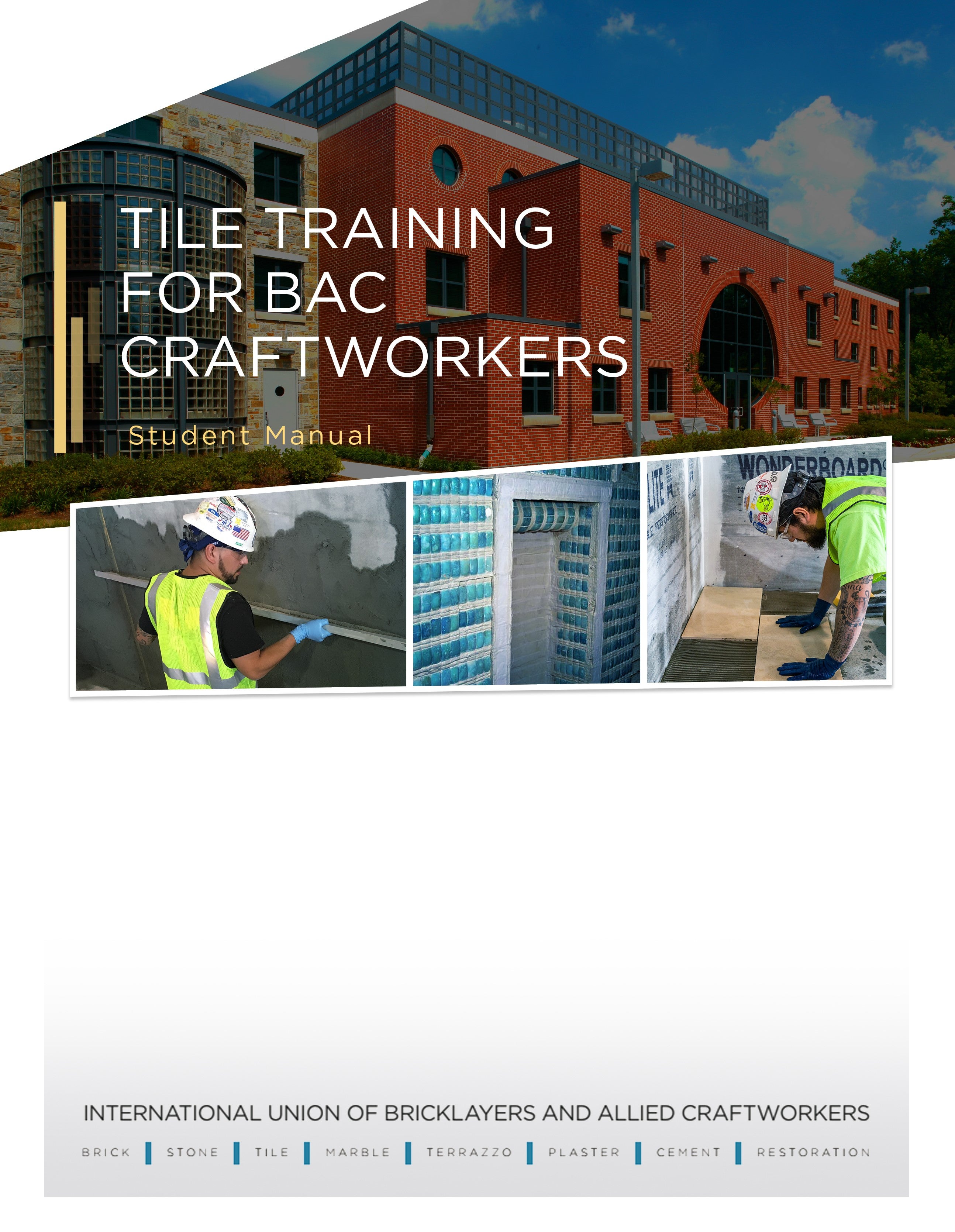IMTEF’s New Tile Curriculum Prepares BAC Apprentices to Meet Industry Installation Standards
The tile industry has undergone a rapid transformation in the last decade with continual innovations in materials and installation methods. The International Masonry Training and Education Foundation’s (IMTEF’s) new tile curriculum, now available at BAC training centers across the country, gives BAC apprentices and craftworkers a competitive advantage by teaching them the skills to successfully install in-demand products using the latest techniques.
The course, Tile Training for BAC Craftworkers: Volume 1, also helps craftworkers understand the “why” behind what they do in the field, providing in-depth information on the American National Standard Specifications (ANSI) and the Tile Council of North America (TCNA) Handbook. The guidelines and standards also cover important day-to-day field and installation requirements, including substrate requirements, grout joint size, patterns, mortar types, and mortar coverage.
“Having that knowledge gives our tile workers power in the field,” says Gavin Collier, Tile Apprentice Coordinator at the District Council Training Center of Illinois (DCTC IL), who helped develop the new curriculum. “If something isn’t right, or they feel the wrong methods are being used, they can point to the standards and handbook and actually have something in writing to show, that, for example, ‘this mortar doesn’t meet the specifications we need in order to put the tile down.’”
Bob Arnold, IMTEF National Director of Apprenticeship and Training agrees, adding that, “If you don’t install the substrates and tile materials correctly, it can lead to failures. It’s a big plus for our contractors to have workers who have the knowledge and skill to be able to raise potential problems.”
That’s not to say all the responsibility falls to the BAC tile layer, but that their expertise can be critical in preventing costly mistakes. “Even though at times it may seem as though [the architect, interior designer, or specifier] knows what needs to be specified, they may miss specifying a material,” the curriculum explains. “At that point, it is up to the project manager (PM) to question the architect. If it gets past all of them, then it is up to the installers to raise a red flag and bring it to the attention of the general contractor (GC) and to the attention of the PM in charge of that particular project.”
In addition to codes and standards, the new curriculum covers critical skill areas like layout and installation for walls, ceilings, and floors; membranes; substrate prep, cutting, and drilling; and grout.
The program includes both classroom and hands-on modules, and is packaged with an instructor guide, presentation slides, and student manual to provide a consistent learning experience.
BAC tile journeyworkers interested in upgrading their skills can request training on any of the topics covered in the new curriculum through their ADC or local training center. The DCTC IL, for example, recently offered a journeyworker course on Gauged Porcelain Tile (GPT) based on information in the new curriculum. GPT – offered in sizes as large as 60”x120” – presents a new set of installation challenges and techniques for tile workers to master.
“Our industry has changed so much, even in the last ten years,” said Collier. “Installation methods can quickly become outdated. The new curriculum covers the most current methods and is extremely thorough…The more educated our workers are, the better it will be for our industry in the end.”

